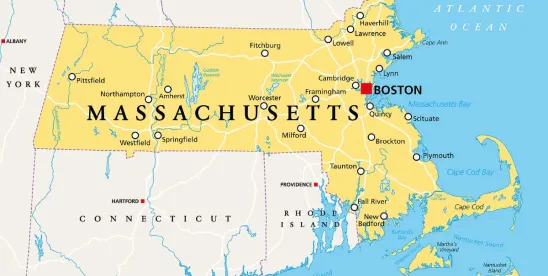Overturning his own bench decision certifying the class, on Nov. 26, 2024, the Honorable William G. Young decertified the nationwide class in Ortiz v. Saba Univ. Sch. of Med., a case alleging false advertising. The court realized the decision was wrong when memorializing it in writing. According to the court, class certification was not appropriate based on plaintiff’s failure to demonstrate predominance under Federal Rule of Civil Procedure 23, which requires that “the questions of law or fact common to class members predominate over any questions affecting only individual members[.]”
Specifically, after conducting a choice of law analysis, the court determined that Massachusetts had the most significant relationship to the claims and, therefore, Massachusetts law (Chapter 93A) should apply. Because each state involved has an interest in applying its own consumer protection laws within its own borders, the court then recognized the risk of Chapter 93A conflicting with other states’ policies and declined to extend the statute to a multi-state class. Therefore, applying Chapter 93A to those other states could undermine “local interests by limiting each state’s ability to enforce its standards.” Plaintiff failed to conduct any analysis of state law variations. As a result, the court found that plaintiff failed to meet her burden of demonstrating that variations in state laws do not overcome common legal issues. Therefore, the predominance of individual state laws posed significant barriers to a uniform application of Chapter 93A.
The court distinguished two of its own cases (Bezdek v. Vibram U.S. Inc. and In re M3 Power Razor Syst. Mktg. Sales Practice Litig.) where the court permitted nationwide class certification under Chapter 93A. Those cases involved an agreed-to settlement class as opposed to a disputed class. Also, the court in those cases carefully evaluated the applicable consumer protection laws (as briefed by the parties) and found that the variations in state law relating to the plaintiffs’ claims did not “overcome the common factual and legal issues shared by the potential class members.”
Finally, the court found that plaintiff’s “full refund model” damages theory under Chapter 93A would not be the most accurate measure of damages for the consumer fraud claims alleged. That is because Chapter 93A seeks to make a plaintiff whole by compensating for the actual harm defendant’s conduct caused, not to punish or to provide a windfall. In support, the court relied on the Massachusetts Supreme Judicial Court’s Hershenow v. Enterprise Rent-A-Car Company of Boston decision, which concluded that a consumer is not entitled to redress under Chapter 93A “where no loss has occurred.”
Overall, this decision demonstrates that certifying nationwide consumer protection claims is subject to specific standards that may not be easily met and that courts will require plaintiffs to demonstrate harm before bestowing on them the protections afforded by Chapter 93A.



 />i
/>i

